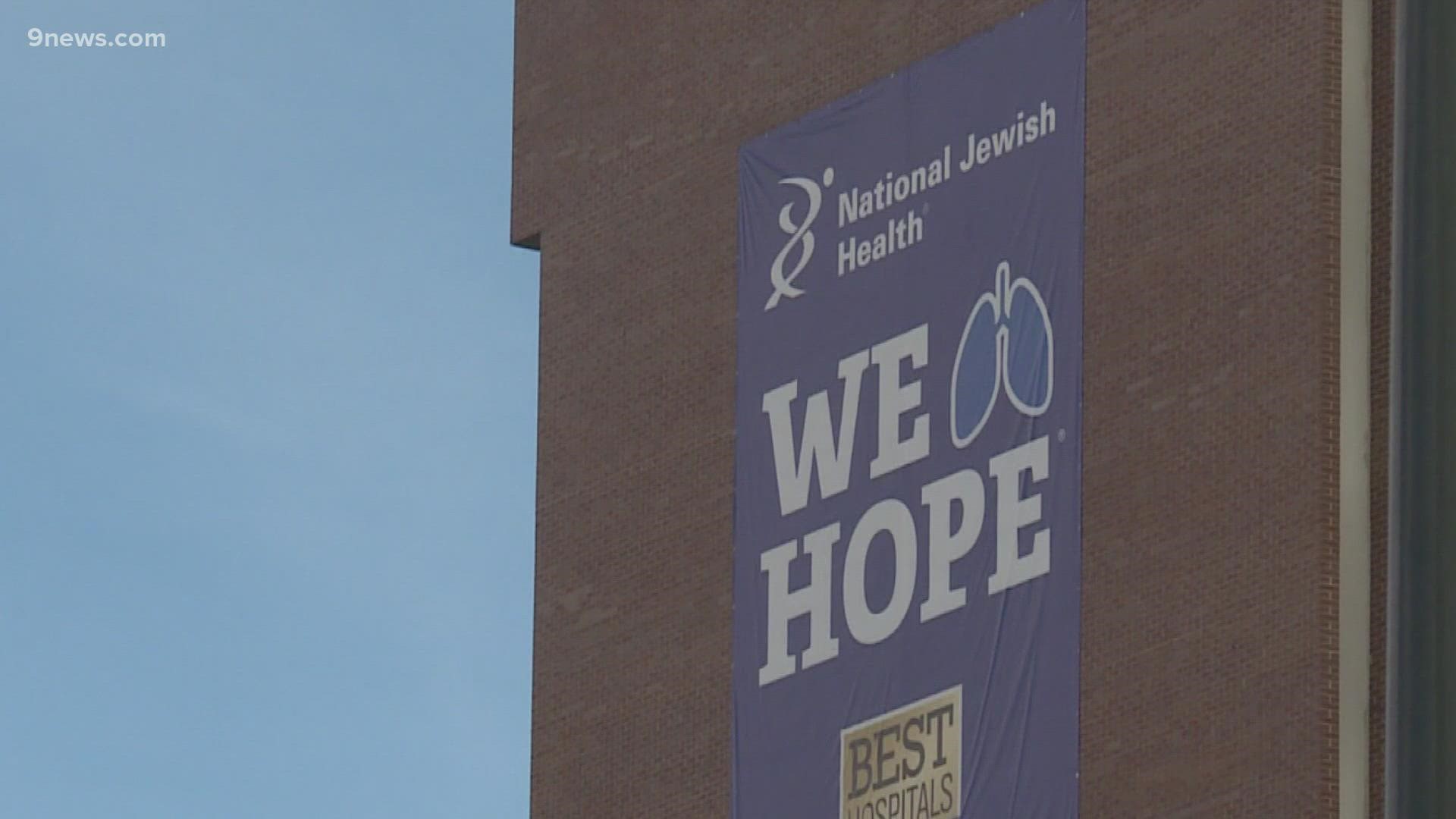DENVER — While much of the world looks pretty normal these days, inside homes like Eileen Adair’s, there’s still a mix of anxiety and frustration.
"Anyone with cystic fibrosis has been a germaphobe for a very long time," said Adair. "Masks are not new for us."
Adair is a high school teacher and has cystic fibrosis, making her immunocompromised. She comes to National Jewish Health in Denver for treatment every couple of months. She’s lived the last two years doing everything she can to not get sick.
Now the virus is just about everywhere. Colorado health officials believe between 1-in-10 and 1-in-15 people are currently infected with COVID-19. It was just a matter of time before it made its way to Adair.
"I don’t know if I would have done anything differently. I was super cautious. And I will always be super cautious," said Adair. "I think this is day 14 of symptoms. I know a lot of people who have gotten it and felt like they had a bad cold for three or four days and they sort of bounce back. I don’t feel like I’m bouncing back."
Stadiums are full. Concerts are packed. COVID continues to spread. But for people who are high risk for serious illness, life is still anything but normal.
"I think now it’s frustrating that it’s just everywhere and it’s almost like no matter how cautious people are, it’s almost inevitable at this point," said Adair.
Adair thinks she got COVID when she met up with a handful of friends for a small Christmas gathering. They all tested negative before coming, and still four of the seven got COVID. They were doing everything right to stay safe, but the virus still found them.
"I certainly had a pit in my stomach. I said to myself, alright, here we go. Hold on," said Adair. "I do feel like basically everybody will get it at this point unfortunately."
Dr. Jen Taylor-Cousar is her pulmonologist at National Jewish Health. She’s one of the directors of the Adult Cystic Fibrosis Center. Every day, she treats dozens of patients who are immunocompromised. National Jewish has the largest Cystic Fibrosis center in country.
"I think it’s hard because everybody else has moved on in a lot of ways and they have to continue to follow these same, strict precautions," said Taylor-Cousar. "They’re still sort of trapped while the rest of the world moves on. It’s really, really hard."
Taylor-Cousar explains this is because people with cystic fibrosis are at a higher risk of chronic lung disease. It makes it a very challenging time right now.
"People who are high risk or immunocompromised are still staying home a lot of times," said Taylor-Cousar. "They just can’t be out in public the way that everybody else is without putting themselves at risk."
As the world moves forward, Adair asks that people remember that not everyone who gets COVID will bounce right back.
"It is hard to see many people acting like there’s no risk to them," said Adair. "I hope people are thoughtful and take good care of themselves and remember that not everybody has the ability to fight that they might."

